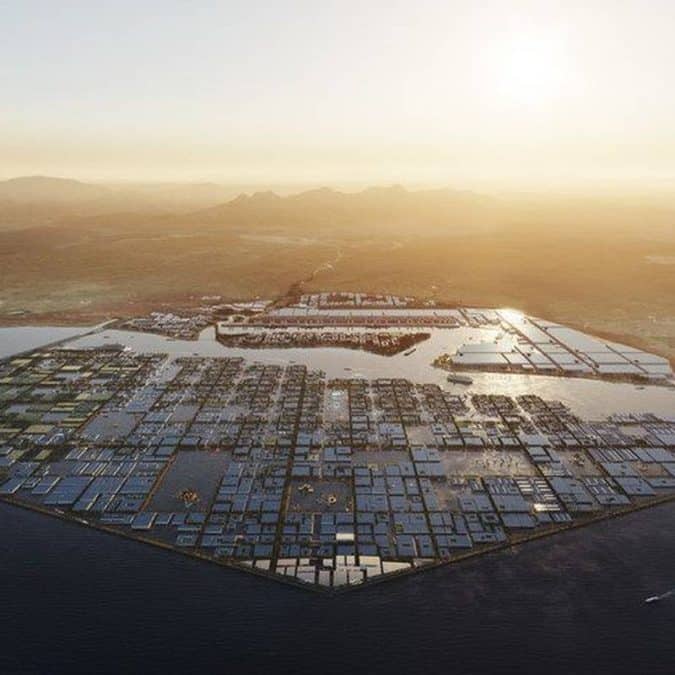Riyadh, Saudi Arabia – On April 13, 2023, Saudi Crown Prince Mohammed bin Salman announced the launch of four special economic zones that would allow foreigners to own 100 percent stake, as part of his plan to position the kingdom as a global investment destination and a vital center that supports global supply chains.
“The launch of these zones continues the initiatives to transform the Kingdom into a global destination for investment and a vital center that supports global supply chains, particularly following the launch of the Special Integrated Logistics Zone, which is located within King Salman International Airport in Riyadh,” Prince Mohammed said at the time.
He emphasized that the zones will benefit from legislative systems and special economic regulations that will make them among the most competitive in the world in attracting the most important investments. He described the zones as integrated logistical and industrial platforms centered on the investor to provide an exceptional investment experience.
These economic zones would leverage the competitive advantages of each region to support vital sectors such as logistics, industry, and technology. The regions are strategically located in Riyadh, Jizan, Ras al-Khair, and King Abdullah Economic City, north of Jeddah, and would benefit from legislative systems and economic regulations designed to make them highly competitive.
The launch of these zones is part of the Kingdom’s long-term program to attract international companies, encourage foreign direct investment, and promote the growth of future sectors by developing world-class infrastructure.
These zones would offer incentives such as competitive tax rates, customs duty exemptions for imports, production inputs, machinery, and raw materials, 100 percent foreign ownership, and the ability to attract the best global human resources.
Davos pitch
At the Davos Economic Forum in January, the Saudi Minister of Economy and Planning Faisal F. Al-Ibrahim highlighted the Kingdom’s capacity to draw in large-scale investments.

“The government believes that it has many components that can attract many partners,” Al-Ibrahim said, citing the availability of natural resources, the organizational changes in the kingdom, and the fact that most of its population is young.
“We have the right incentive structures, governance, and processes in place to attract the right kind of investors and provide them with the right returns as partners,” he added.
Al-Ibrahim said the Saudi government has made over 700 legal changes to attract investors.
“We are very serious about our economic diversification efforts,” he said. “We are open and in conversation with all of our partners who are interested in the Saudi story.”
Strategic location
Saudi Arabia is competing with regional countries, particularly the UAE, to attract foreign investments. According to the British newspaper Financial Times, Saudi Arabia hopes that its regulatory incentives and strategic location would help it compete with its Gulf neighbor, whose tax-free zones such as Jebel Ali have made it a regional hub for multinational corporations.
The government has the right incentive structures, governance, and processes in place to attract the right investors and provide them with the right returns as partners.
The kingdom’s availability of natural resources, organizational changes, and a young population add to its attraction for the investors.
Saudi Arabia has benefited from the rise in oil prices caused by the Russian-Ukrainian war and is expected to achieve the Group of Twenty’s highest economic growth rate.








